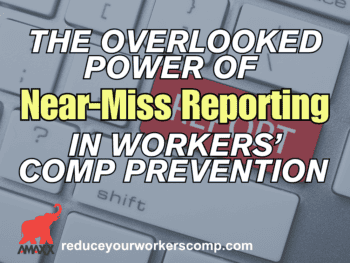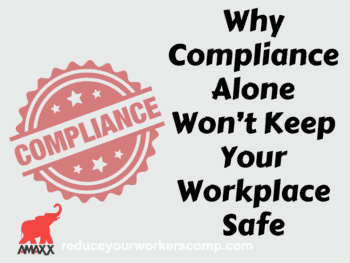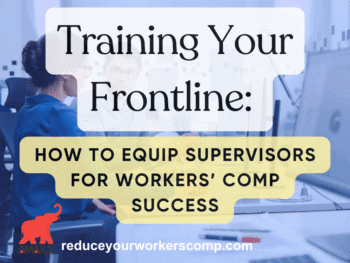Preventing a HEAT Related Injury or Illness
Extended exposure to heat (inside or out) taxes the body beyond its ability to cool. The effects of heat are magnified in the very young, elderly and those with medical conditions. Employers and employees must become familiar with the signs of heat distress and what actions to take.
LOOK for these Signs and Symptoms
Heat Cramps
Caused by: Excessive sweating and loss of salt due to over activity.
You may experience:
- Muscle spasms of the legs, arms and/or abdomen
Heat Exhaustion
Caused by: Loss of large amounts of fluid and/or salt by sweating
You may experience:
- Clammy and moist skin
- Extreme weakness or fatigue
- Giddiness
- Nausea
- Headache
- Fainting
Heat Stroke (Very Serious)
You may experience:
- Extremely high body temperature (above 103°, orally)
- Red hot and dry skin (no sweating)
- Rapid, strong, pulse
- Throbbing headache
- Dizziness
- Nausea
- Confusion
- Unconsciousness
Prompt assessment of employees experiencing any of these symptoms, and the delivery of appropriate first aid or emergency medical care are advised.
Exposure to environmental heat is also a factor work-related, nonfatal injuries or illnesses requiring days away from work.
Prevention is the best defense against heat-related illnesses. The following tips can aid in protecting employees from extreme heat and health related injuries.
12 Tips to protect employees from extreme heat conditions.
- Drink 16-32 ounces of cool fluids each hour when working outdoors.
- Replace salt and minerals with electrolyte drinks.
- Do not rush. A slower but steady pace reduces stress on the body.
- Avoid working in direct sunlight whenever possible, and take frequent breaks.
- Protect the face and head by wearing a wide-brimmed hat.
- Wear UV-absorbent sunglasses to protect the eyes.
- Perform most strenuous outdoor tasks during the morning, if possible.
- Wear loose-fitting, light weight, light-colored clothing.
- Use a buddy system and check on employees often; monitoring for heat-related symptoms increases the chances of avoiding illness.
- Avoid hot foods and heavy meals, since they add heat to the body.
- Avoid caffeine and alcohol, due to their dehydrating properties.
- AND, if an employee has a known at-risk health condition (ASK for Pete’s Sake!) like a heart problem, allergies or bee/wasp sting reactions CALL 911 IMMEDIATELY! DON’T WAIT!
Author: Robert Elliott, J.D.
WC Calculator: www.reduceyourworkerscomp.com/calculator.php
TD Calculator:www.ReduceYourWorkersComp.com/transitional-duty-cost-calculator.php
WC 101: www.ReduceYourWorkersComp.com/workers_comp.php
Follow Us On Twitter: www.twitter.com/WorkersCompKit
Do not use this information without independent verification. All state laws are different so do not implement any cost containment procedures until you have discussed them with your corporate counsel. Your individual doctor must treat medical issues. We are not giving medical advice; this is an overview of wellness topics, not medical advice.
©2008 Amaxx Risk Solutions, Inc. All rights reserved under International Copyright Law. If you would like permission to reprint this material, contact Info@WorkersCompKit.com



























